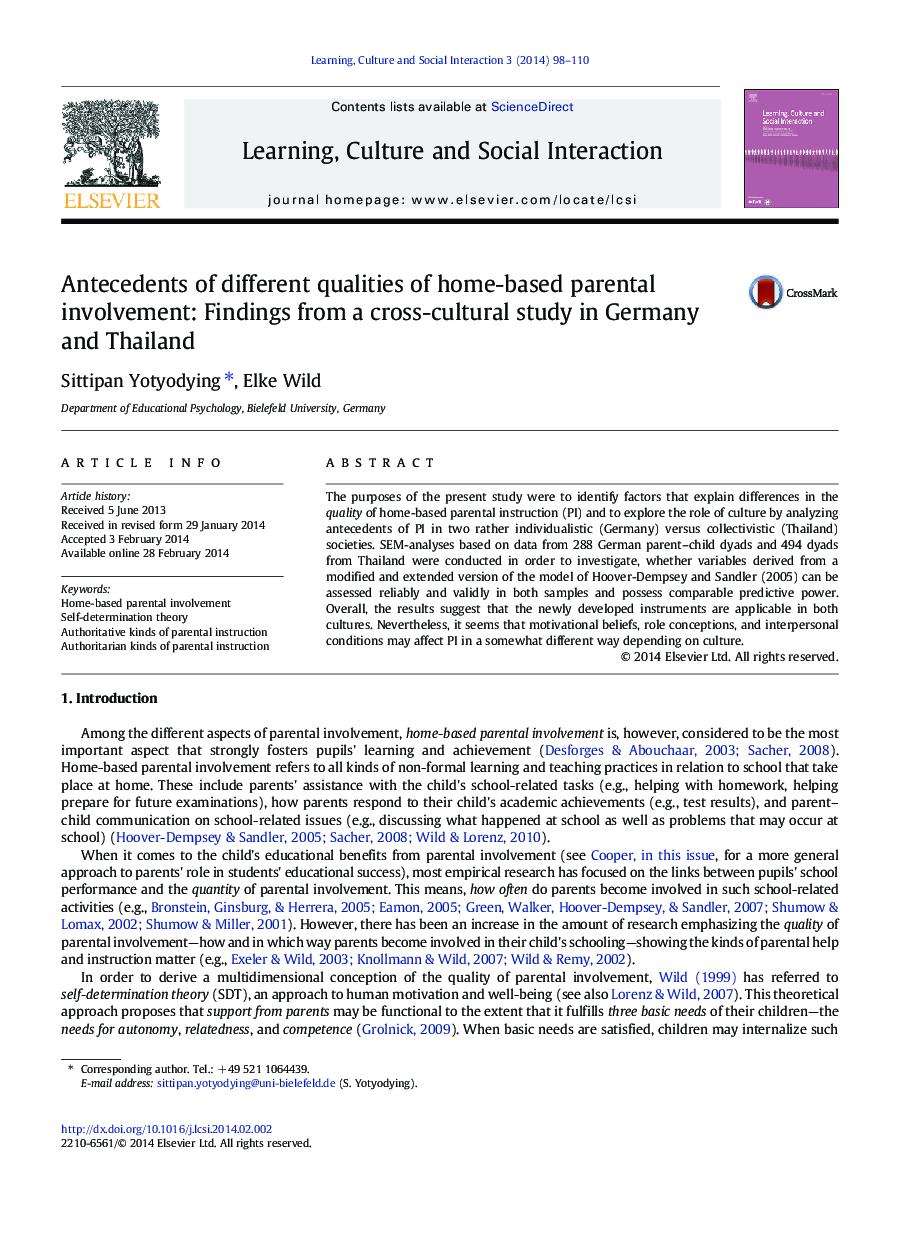| Article ID | Journal | Published Year | Pages | File Type |
|---|---|---|---|---|
| 364372 | Learning, Culture and Social Interaction | 2014 | 13 Pages |
The purposes of the present study were to identify factors that explain differences in the quality of home-based parental instruction (PI) and to explore the role of culture by analyzing antecedents of PI in two rather individualistic (Germany) versus collectivistic (Thailand) societies. SEM-analyses based on data from 288 German parent–child dyads and 494 dyads from Thailand were conducted in order to investigate, whether variables derived from a modified and extended version of the model of Hoover-Dempsey and Sandler (2005) can be assessed reliably and validly in both samples and possess comparable predictive power. Overall, the results suggest that the newly developed instruments are applicable in both cultures. Nevertheless, it seems that motivational beliefs, role conceptions, and interpersonal conditions may affect PI in a somewhat different way depending on culture.
